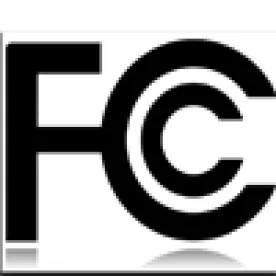Negotiations between television channels/networks and pay TV operators are a breed apart. The stakes are high and the consequence of failure – a “dark” screen – is all too public.
But the critical factor that sets these negotiations apart is the actual regulation of the negotiations under three main categories of rules.
-
Broadcasters may invoke “Must Carry” status or seek to negotiate terms for “retransmission” under FCC rules requiring “good faith” negotiations.
-
Program Carriage rules protect channels and networks from certain abuses by operators. Conversely, Program Access rules ensure operators have certain rights to license programming.
-
The FCC also has issued a series of orders in connection with mergers and other transactions, some of which allow an arbitrator to pick one offer or the other in “night” baseball-style arbitration when certain networks and operators cannot agree on terms of carriage.
On August 26, 2016, the FCC Media Bureau ruled that broadcasters are limited to the first bucket above, the Must Carry/Retransmission Consent rules. (In re Liberman Broadcasting, Inc. v. Comcast Corp., MB Docket No. 16-121 (Aug. 26, 2016). This is significant because it comes in the midst of an ongoing debate over the Retransmission Consent rules and the FCC’s “totality of the circumstances” test. Generally speaking, a party to a retransmission consent negotiation may seek to demonstrate, based on the “totality of the circumstances” of a particular retransmission consent negotiation, that the other party breached its duty to negotiate in good faith. Under the Media Bureau’s ruling, broadcasters may look solely to the Retransmission Consent rules to regulate their carriage negotiations.
The ruling stems from a complaint filed by Liberman Broadcasting, Inc. (Estrella TV). Estrella TV is a Spanish language network with broadcast affiliates in Houston, Denver, Salt Lake City, and elsewhere. Liberman alleged that, after Estrella TV switched from uncompensated “Must Carry” status to negotiable “Retransmission Consent” status, the cable operator refused to carry the network on terms comparable to those for the operator’s own affiliated Spanish language networks. Instead of invoking the Retransmission Consent rules, however, Liberman claimed that the operator’s actions violated the Program Carriage rules and portions of an FCC Order that prohibits discrimination based on affiliation.
After relatively lengthy briefing by both sides, the Media Bureau dismissed Liberman’s petition. The Media Bureau ruled that the Program Carriage rules and related portions of the FCC Order apply only to “video programming vendors” and that broadcasters, like Liberman, are not “video programming vendors” when they license retransmission of their over-the-air broadcast signals. In the Media Bureau’s view, Congress created two, mutually exclusive regimes for pay TV carriage contracts: the Must Carry/Retransmission Consent rules for broadcast signals and the Program Carriage/Program Access. It rejected Liberman’s argument that it satisfied the plain meaning of “video programming vendor” when Liberman sought to negotiate paid retransmission of Estrella TV, even though Liberman itself produces about 75% of the programming. The Bureau reasoned that Liberman was licensing its signal, not the programming itself.
The ruling preserves the status quo in which broadcast negotiation disputes are within the domain of the FCC’s Retransmission Consent rules and “totality of the circumstances” test.



 />i
/>i

